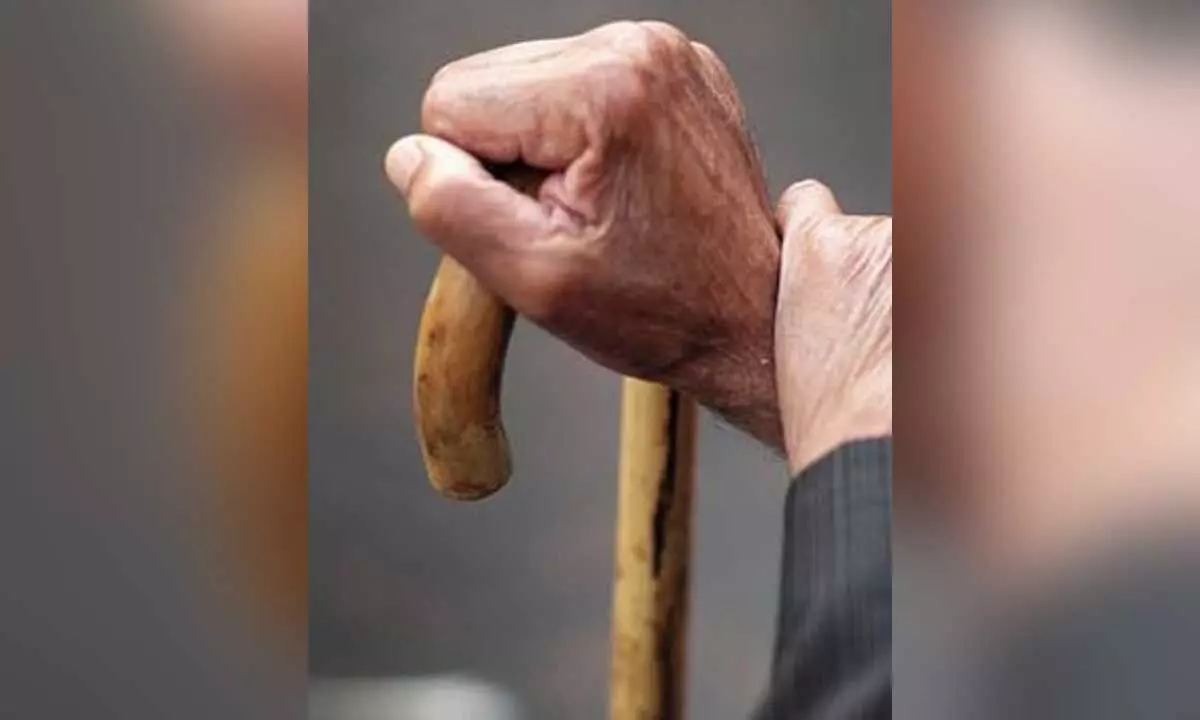Why old age is a risk factor for Covid-19
Share :

Ageing is known to increase the production of an immune protein that may harmfully react with a person's own tissues or organs. But researchers have now found that Covid-19 infection can exacerbate their production, explaining why old age raises the odds of developing severe Covid.
Sao Paulo: Ageing is known to increase the production of an immune protein that may harmfully react with a person's own tissues or organs. But researchers have now found that Covid-19 infection can exacerbate their production, explaining why old age raises the odds of developing severe Covid.
Increases in the immune protein, known as auto-antibodies, may also lead to blood clotting disorders such as thrombosis, showed the study, published in the journal npj Aging.
"These findings open the door to a better understanding of many pathological events associated with Covid-19, ranging from memory loss to sudden death from acute thrombosis. The hyperinflammation typical of severe Covid and the increase in auto-antibodies produce blood clotting, resulting in the need to reconstruct tissue and recruit a coagulation cascade," said Otavio Cabral-Marques, a professor at the University of Sao Paulo's Medical School (FM-USP) in Brazil.
“Thrombosis and inflammation are closely correlated. Our study is one more confirmation of this important link,” he added.
The researchers showed that the rise in the levels of auto-antibodies in severe Covid-19 cases could also be true of other conditions such as sepsis.
The study involved an analysis of auto-antibody data for 159 Covid-19 patients (71 mild, 61 moderate, and 27 severe) and 72 healthy individuals as the control group.
"When we cross-referenced the data using artificial intelligence techniques, we discovered two main auto-antibodies that were exacerbated in patients with severe symptoms. They were precisely the auto-antibodies associated with blood clotting and thrombocytopenia (low blood platelet count, heightening the risk of haemorrhage)," said Dennyson Leandro M. Fonseca from the varsity.
High levels of these auto-antibodies, he explained, can lead the organism to harm itself by producing blood clots and netosis -- an immune system mechanism involving regulated cell death via the formation of neutrophil extracellular traps (NETs), networks of DNA that bind to pathogenic microbes.
In certain cases, NETs serve as markers of alveolar inflammation and may contribute to tissue injury.
"When we divided the data into younger and older patients, we found that although this mechanism may occur in under-50s, it makes the elderly more susceptible to severe Covid-19. This explains why old age is one of the main risk factors for Covid-19," he said.
Previous studies showed that auto-antibodies targeting proteins in the first line of anti-viral defense (interferons) are present in the general population and increase dramatically in older Covid-19 patients. The study extends the classes of auto-antibodies associated with ageing and confirms that their impact varies according to age and Covid-19 severity.
Severe Covid-19 is known to cause profound organ damage due to a combination of auto-inflammatory and auto-immune responses. This process can result in myopathy (muscle disorders), vasculitis (blood vessel inflammation), arthritis (joint inflammation), anti-phospholipid syndrome (APS) associated with deep vein thrombosis, pulmonary embolism and stroke, as well as other damage to lungs, kidneys and the neurological system.
















